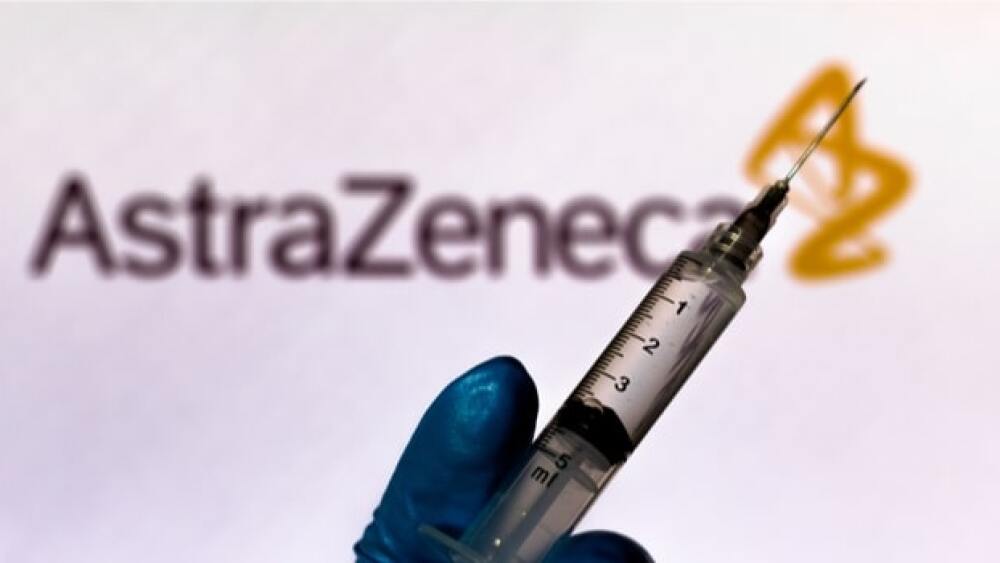Sir Mene Pangalos said the company was considering not submitting it to the FDA if it finds it is “banging its head against a brick wall indefinitely.”
rafapress via shutterstock
The COVID-19 vaccine co-developed by the University of Oxford and AstraZeneca is used throughout the world — but not in the U.S. In fact, it has not yet been submitted for Emergency Use Authorization (EUA) to the U.S. Food and Drug Administration. And now there are suggestions that it never will be.
Back in April 2020, AstraZeneca and the University of Oxford seemed to be ahead of everyone else in developing a COVID-19 vaccine. The Jenner Institute at Oxford had tested a vaccine for an earlier coronavirus in 2019, proved it was not harmful to humans and demonstrated its effectiveness in macaque monkeys in the National Institutes of Health’s Rocky Mountain Laboratory in Montana.
And in March 2021, the company reported results from a U.S. Phase III trial of the vaccine, demonstrating 79% efficacy at preventing symptomatic COVID-19 and 100% efficacy at preventing severe disease and hospitalization. But then there were issues raised about the Data and Safety Monitoring Board (DSMB) that was supervising the trial, suggesting that some of the data may have been outdated and incomplete. Then there were issues with rare blood clots in some patients after it had been authorized in other parts of the world. As a result, for a time in April 2021, many countries halted distribution of the vaccine while the blood clotting was evaluated.
Meanwhile, AstraZeneca delayed submitting the vaccine to U.S. regulators for EUA. On Thursday, Sir Mene Pangalos, AstraZeneca’s executive vice president, BioPharmaceuticals R&D, said the company was considering not submitting it to the FDA if it finds it is “banging its head against a brick wall indefinitely.”
Instead, it would focus on other countries, although it would continue talks with the FDA. Back in April 2021, almost a year ago, AstraZeneca had indicated its plans to submit within weeks.
“We don’t need to push it in places we are not needed or wanted,” Pangalos told the Financial Times. “If we don’t end up submitting it for a BLA [Biologics License Application], I don’t think it will have an impact around the world.”
Probably not, with more than 70% of the eligible U.S. population already vaccinated with shots from Moderna, Johnson & Johnson or Pfizer-BioNTech. And early on, AstraZeneca indicated it was going to focus on lower-income countries. To date, the company has already delivered approximately 2.6 billion doses of its vaccine. Even there, it hasn’t been free of problems. Per the Irish Times, AstraZeneca has been sued by the European Commission over delays in delivery (which was settled) and the blood clotting problems mentioned above.
On the part of U.S. regulators, they haven’t acted particularly interested. One senior official told the Financial Times, “That product has fallen off my radar.” Another told them, “Astra is not going to get approved here - we don’t need it.”
That isn’t the same story with the company’s antibody therapy for COVID-19, Evusheld. The U.S. government had acquired more than a million doses with plans to buy more, even though funding for COVID-19 relief is currently a bouncing ball in Congress, which is debating whether to fund more and where the money would come from.
Yesterday, Evusheld was authorized in the U.K. by the Medicines and Healthcare products Regulatory Agency (MHRA). It is designed for adults who are not currently infected to COVID-19 and are unlikely to have an appropriate response to vaccines.
Pangalos said, “It is a very important therapy for the immunosuppressed who have been even more locked down than they have ever been.”





